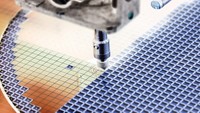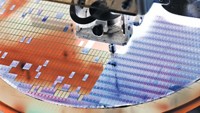Advertisement
Grab your lab coat. Let's get started
Welcome!
Welcome!
Create an account below to get 6 C&EN articles per month, receive newsletters and more - all free.
It seems this is your first time logging in online. Please enter the following information to continue.
As an ACS member you automatically get access to this site. All we need is few more details to create your reading experience.
Not you? Sign in with a different account.
Not you? Sign in with a different account.
ERROR 1
ERROR 1
ERROR 2
ERROR 2
ERROR 2
ERROR 2
ERROR 2
Password and Confirm password must match.
If you have an ACS member number, please enter it here so we can link this account to your membership. (optional)
ERROR 2
ACS values your privacy. By submitting your information, you are gaining access to C&EN and subscribing to our weekly newsletter. We use the information you provide to make your reading experience better, and we will never sell your data to third party members.
Mergers & Acquisitions
Japanese chemical makers Nippon Shokubai and Sanyo Chemical to merge
The move by 2 medium-size players could herald a new wave of consolidation
by Katsumori Matsuoka, special to C&EN
December 12, 2019
| A version of this story appeared in
Volume 97, Issue 48

With two midsize Japanese chemical makers merging and rumors floating that two other firms may combine, experts say consolidation may be coming to the fragmented Japanese chemical industry.
After the announcement of merger discussions in May, Nippon Shokubai and Sanyo Chemical say they have agreed to combine into a new company, to be called Synfomix. And reports came out of Japan last month that Showa Denko was considering the acquisition of Hitachi Chemical, among other possible targets.
The combination of Shokubai and Sanyo will create a firm with annual sales of roughly $4.7 billion. Shokubai is the larger, with 2018 sales of $3.2 billion.
Both players focus on specialties, particularly materials used in health and personal care. Notably, both produce superabsorbent polymers (SAPs), the key material in diapers. Vertically integrated, Shokubai is the world’s largest producer of SAPs. Sanyo is less focused on SAPs and offers 3,000 materials used in a range of industries.
Industry watchers in Japan applaud the merger. “It is a good move, taking into account that Chinese competitors are catching up with them in terms of technology, and their market share is still high,” says Shigeyuki Tsuchida, co–chief investment officer at Innovation Network Corporation of Japan, a public-private partnership.
Meanwhile, Hitachi Ltd. indicated earlier this year that it was considering selling its 51% stake in Hitachi Chemical, a $6 billion-per-year firm. Showa Denko, dependent on its graphite operation for much of its profits, is said to be interested in buying the business as a diversification move.
Mikiya Yamada, a stock analyst at Mizuho Securities, considers a Hitachi–Showa Denko union unlikely, given that Hitachi’s stake in the business is valued at a steep $8.3 billion. But overall, he sees more mergers ahead in the Japanese chemical industry, which is more fragmented than it is in the West.
R&D is key to the Japanese industry’s survival, and research technology has been changing drastically. To adapt, Yamada says, chemical companies need sales big enough to support healthy research spending. “This type of integration of Japanese chemical companies will happen more,” he says.




Join the conversation
Contact the reporter
Submit a Letter to the Editor for publication
Engage with us on Twitter